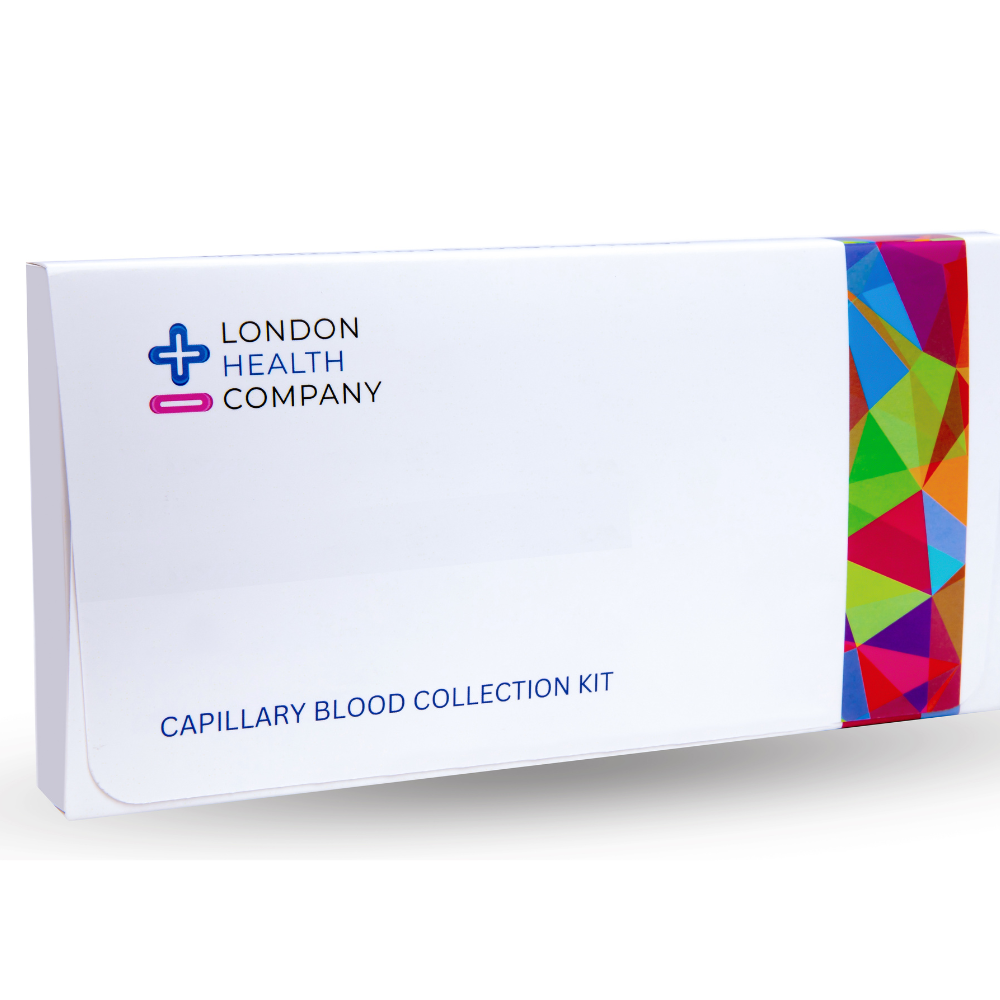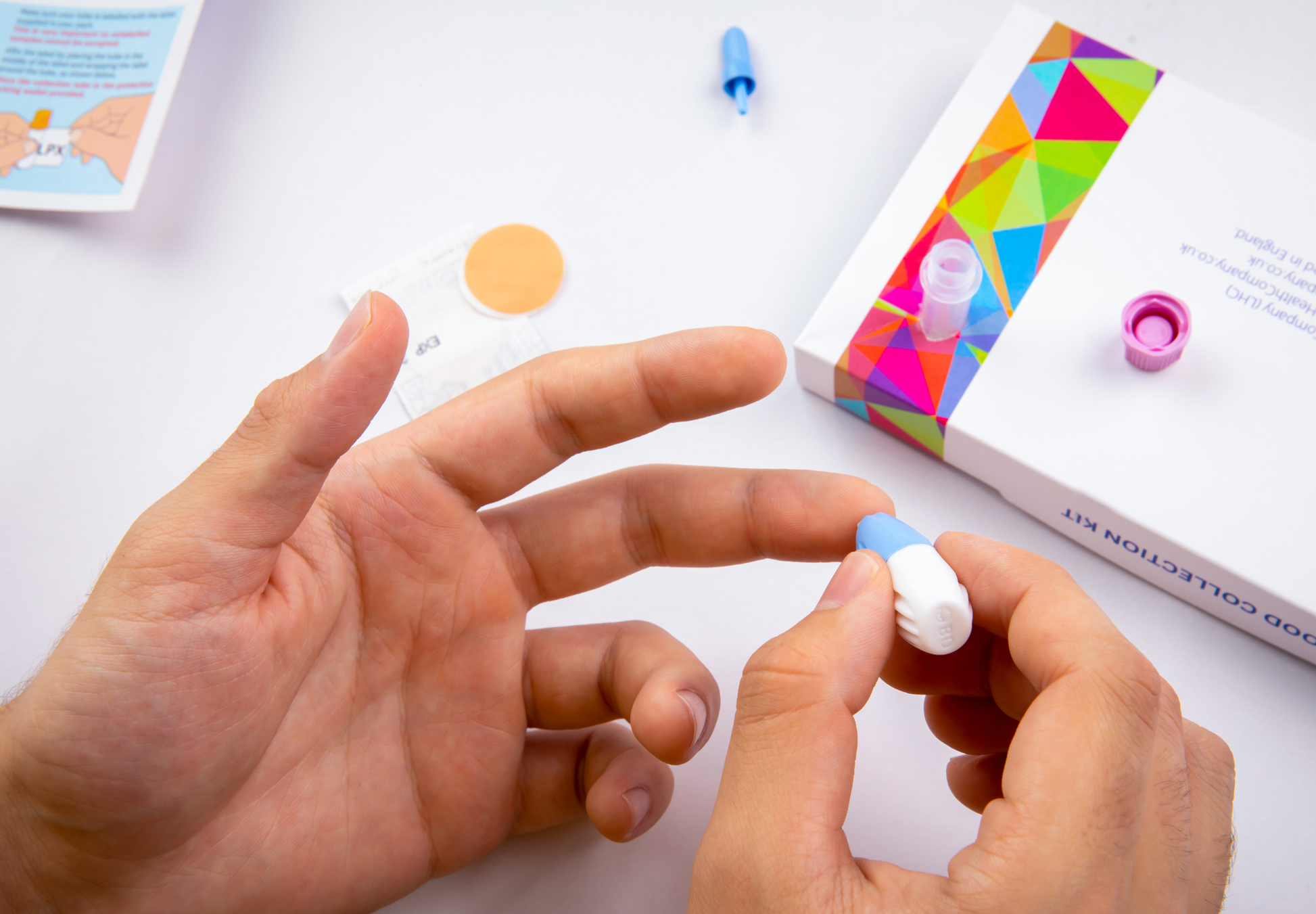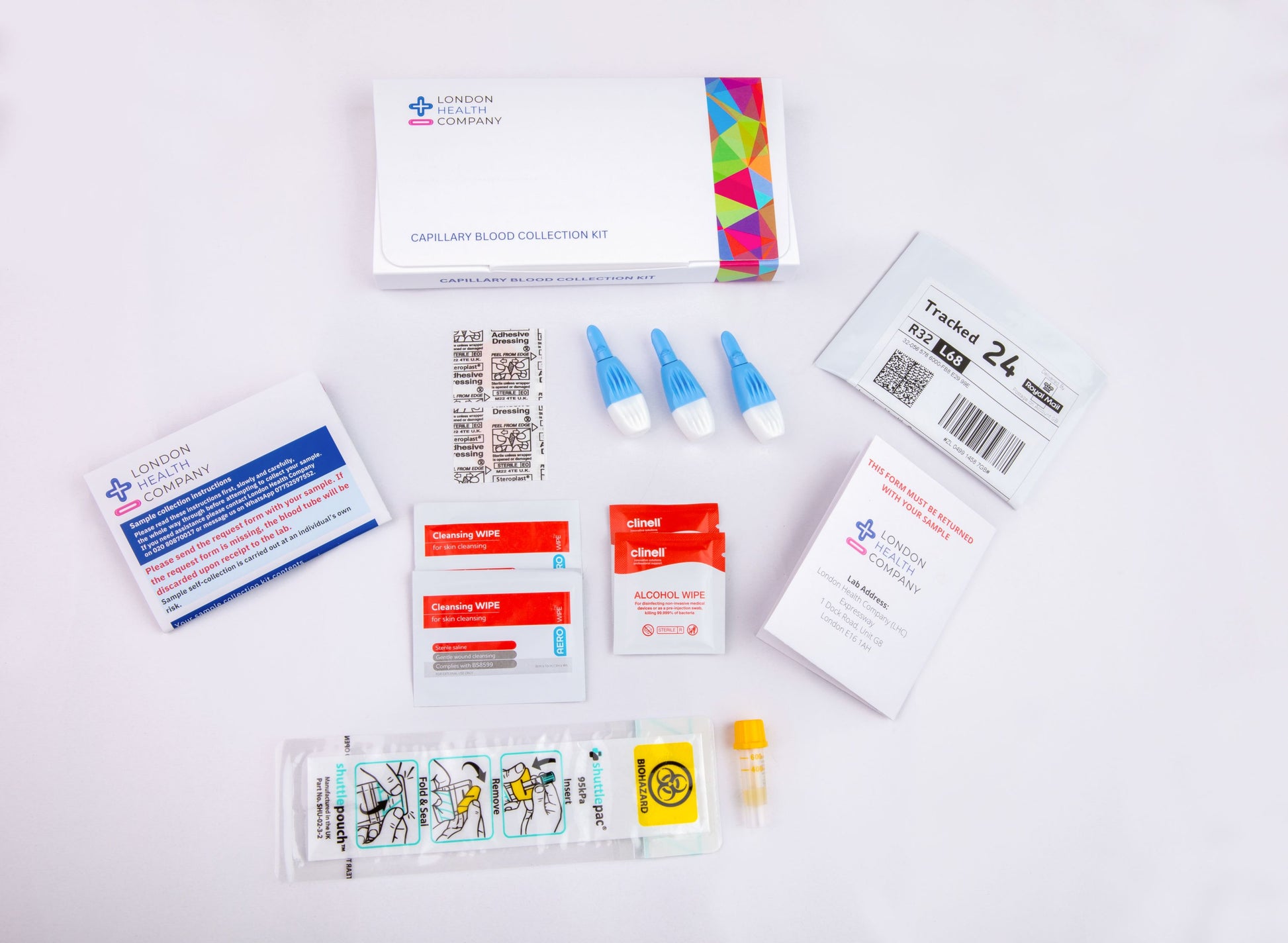Progesterone Hormone Test
Progesterone Hormone Test
Couldn't load pickup availability
Progesterone, a female sex hormone, primarily prepares the uterus for pregnancy and maintains it during gestation. The placenta starts producing progesterone at 12 weeks of pregnancy, and its levels peak in the midluteal phase of the menstrual cycle. In non-pregnant women, the corpus luteum produces progesterone, which is the best indicator of ovulation.
This test can be used as part of a fertility study to confirm ovulation, evaluate corpus luteum function, and assess the risk of early miscarriage. Depending on what a health professional is after when asking for this test, multiple samples maybe needed throughout the cycle. Progesterone production by the ovaries is low during the follicular (first) phase of the menstrual cycle. After ovulation, progesterone levels rise for 4 to 5 days before falling. During pregnancy, progesterone levels gradually increase from week 9 to week 32, often reaching up to 100 times the level in non-pregnant women. Progesterone levels are higher in twin pregnancies compared to single pregnancies. Combined with ß-hCG, serum progesterone levels help differentiate between normal uterine pregnancy and abnormal or ectopic pregnancy.
Share
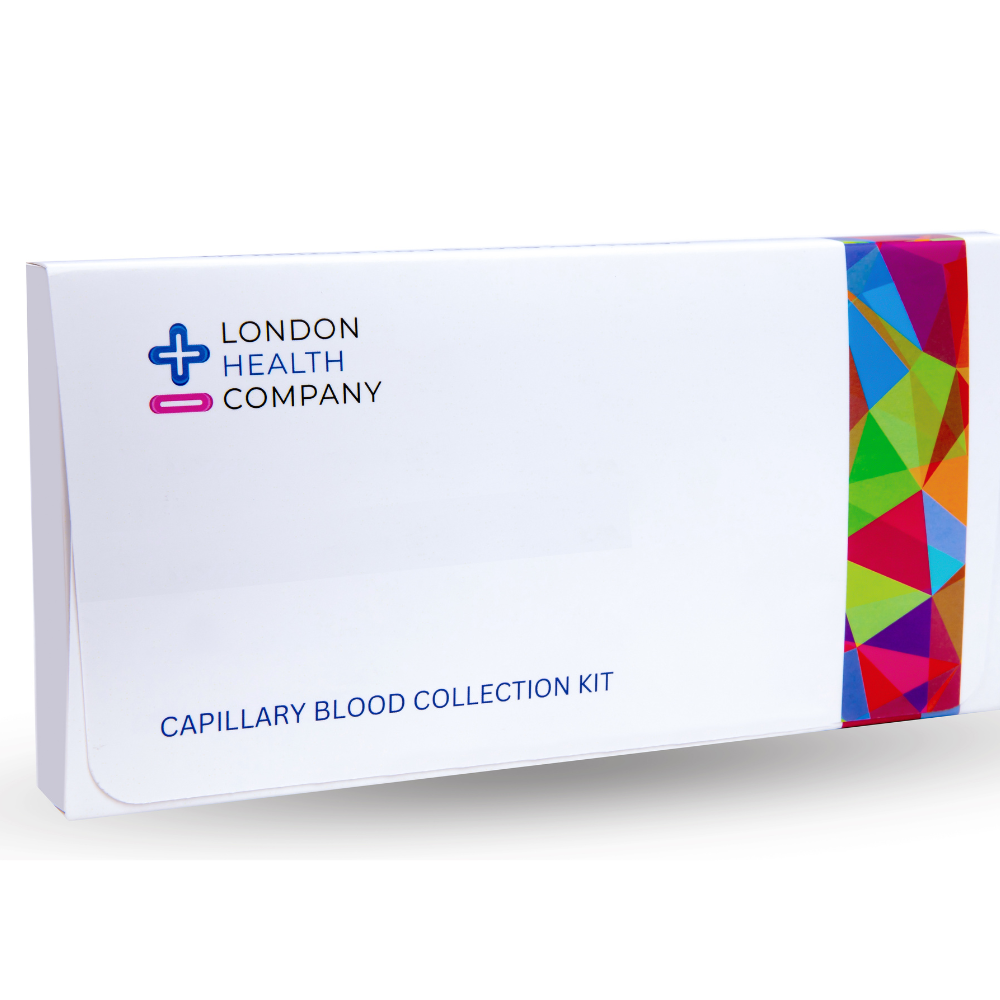

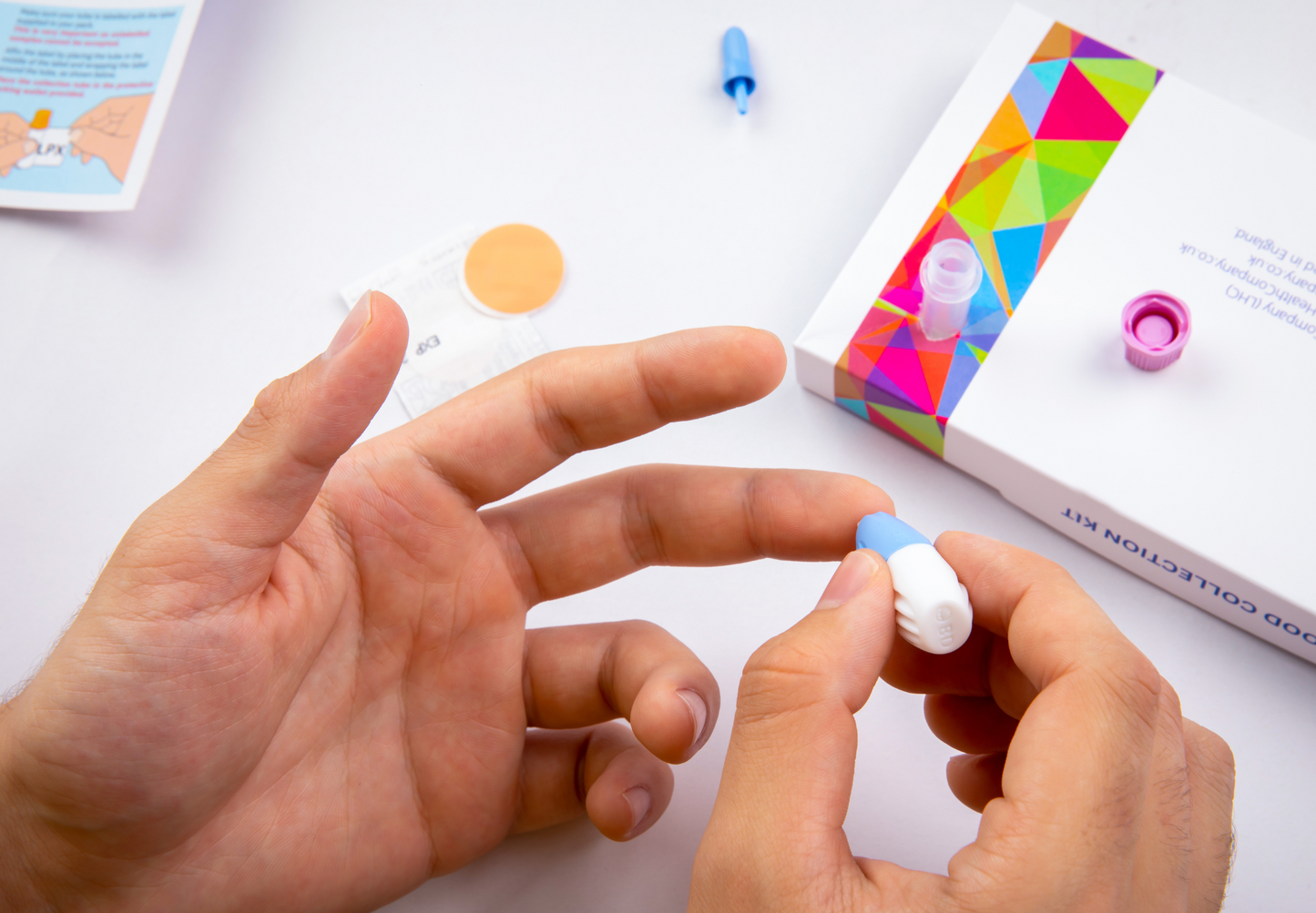
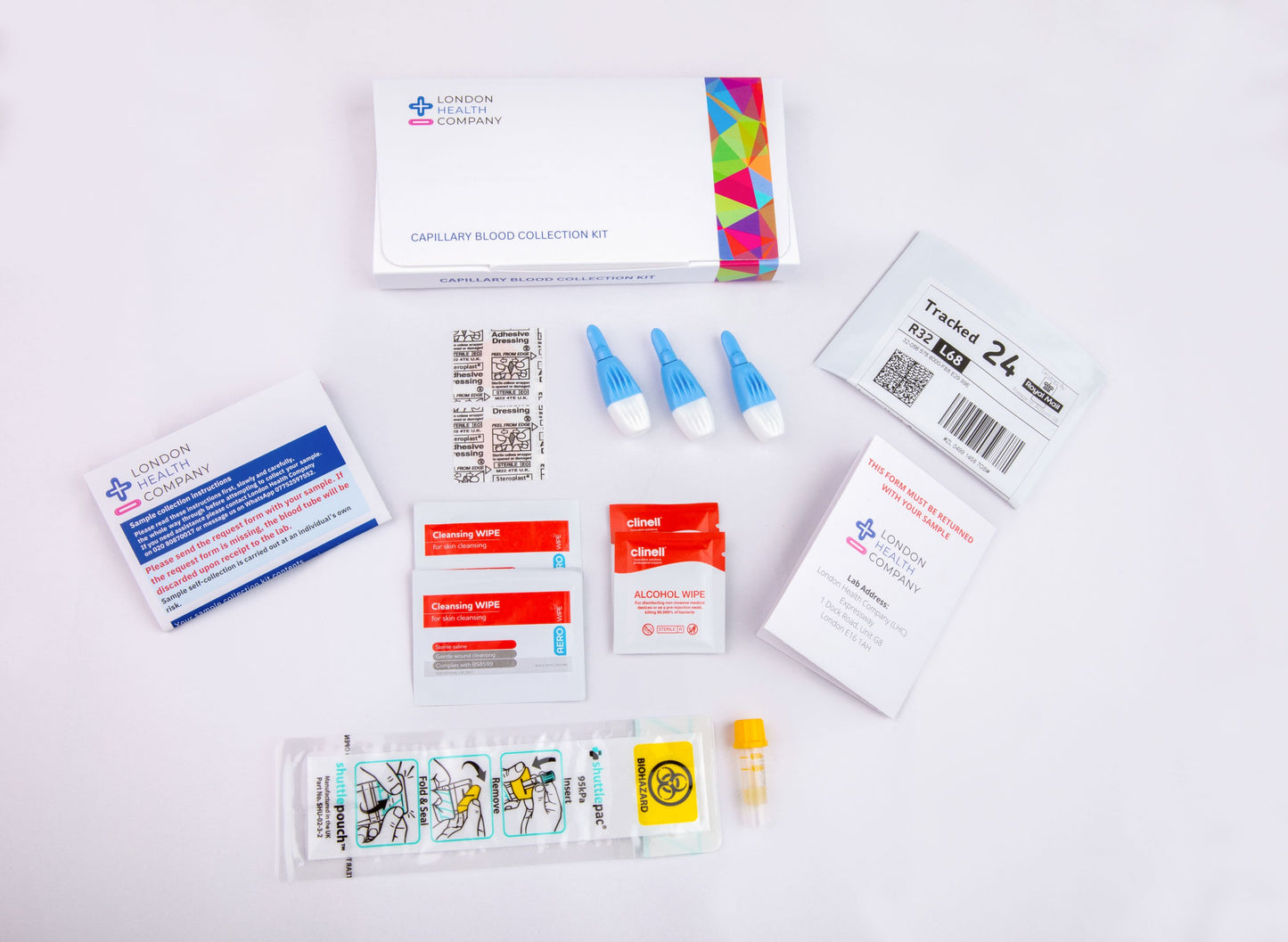
How it works
-
Order kit
Order the kit that you want based on what you want to be tested. We ship all orders placed before 1pm same day.
-
Collect your sample at home
Collect your own sample using a simple finger prick. Everything you need will be included in the kit.
-
Send your sample to the lab
Simply drop in any red letter box. No need to arrange for courier pickup or pay for returns. Remember to register online using the unique sample ID to get your results.
-
Receive results
We will analyse your sample and send you results by email within 24-48 hours. A copy can be sent to your GP/surgery if you wish.
Health & Medical Information Related to our Tests
View all-
From Screening to Treatment: Insights from the ...
Due to better understanding of risk factors, improved screening, and personalised decision-making, many men with prostate cancer can avoid over-treatment while maintaining excellent long-term outcomes. Meanwhile, for men with higher-risk...
From Screening to Treatment: Insights from the ...
Due to better understanding of risk factors, improved screening, and personalised decision-making, many men with prostate cancer can avoid over-treatment while maintaining excellent long-term outcomes. Meanwhile, for men with higher-risk...
-

HbA1C Chromatograms
A chromatogram graph is a detailed visual record generated by our HPLC (High-Performance Liquid Chromatography) system during your HbA1c test. It illustrates how the different components of your blood sample...
HbA1C Chromatograms
A chromatogram graph is a detailed visual record generated by our HPLC (High-Performance Liquid Chromatography) system during your HbA1c test. It illustrates how the different components of your blood sample...
-
Exploring Oral Testosterone Therapy: Safety and...
Explore the latest 2024 review on oral testosterone therapy for hypogonadal men. Learn about its safety, effectiveness, and benefits for bone health, cognition, and more. Based on a comprehensive medRxiv...
Exploring Oral Testosterone Therapy: Safety and...
Explore the latest 2024 review on oral testosterone therapy for hypogonadal men. Learn about its safety, effectiveness, and benefits for bone health, cognition, and more. Based on a comprehensive medRxiv...
-
How Virtual Care Is Transforming Type 2 Diabete...
How Virtual Care Improves Type 2 Diabetes Management | Key Insights from 2025 Review
How Virtual Care Is Transforming Type 2 Diabete...
How Virtual Care Improves Type 2 Diabetes Management | Key Insights from 2025 Review

